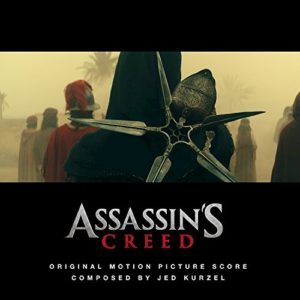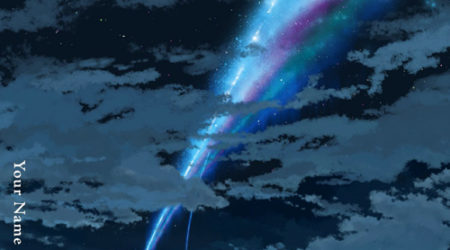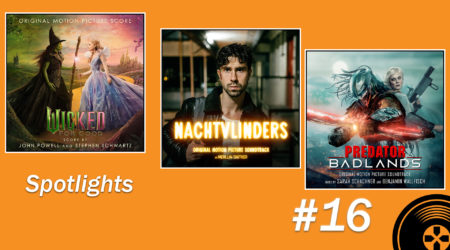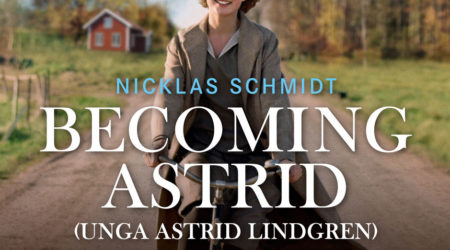
The French company Ubisoft is one of the biggest computer gaming companies in the world, churning out sequels to their most popular games – like Far Cry or Watch_Dogs – every couple years. One of their most popular franchises is Assassin’s Creed. It is so popular that Ubisoft has released a new Assassin’s Creed game every year. Some years they even release two. Assassin’s Creed games are about an ever-going war between the Assassin’s Brotherhood and the Templar Order. They fight over ancient mysterious artifacts that have special powers. A central concept of these games is that memories of your ancestors are stored in your own DNA. With a special machine, it is possible to relive these memories. For Ubisoft this is the perfect scenario to create nice history-related stories. They have covered pirates, the renaissance, the founding of the USA and many more. Each time the story is told through the eyes of a different assassin and his future descendant.
The last couple of Assassin’s Creed games were not as successful as Ubisoft has hoped they would be. They decided it would be best to skip making a new sequel in 2016 and take an extra year for it. This means they had a gap to fill. Producing the movie Assassin’s Creed directed by Justin Kurzel was Ubisoft’s solution for this problem. The movie is set in two time periods with Michael Fassbender in the lead for both. One time period is present day, where Cal, a murder convict on death row, is sent to relive his past with the help of a prototype machine – the animus. In the other time period, Fassbender plays the role of assassin Aguilar during the Spanish Inquisition in the late 1400s.
When I heard the announcement for this movie, I was hoping for one of the game composers to step in to write the music. The Assassin’s Creed games have been graced with scores from great game composers Jesper Kyd and Austin Wintory. Film composers Bear McCreary and Lorne Balfe have also done their share. Instead, the honor of writing music for the movie was given to the brother of the director, Jed Kurzel.
I had never heard of Kurzel before. A quick search on Wikipedia and IMDB reveals that he started his musical career as a guitarist and vocalist in an Australian band and has scored feature and short films, including all of his brother’s movies. During my research I realized why his name sounded a bit familiar: he is also replacing Harry Gregson-Williams as the composer for the new Alien movie Alien: Covenant.
After listening to the score carefully I can divide it into three categories. First, the emotional tracks: these try to get an emotional response, usually with long-lined melodies. “Abstergo,” “Cal Recuperates,” “Columbus,” and “The Creed” are examples of those emotional tracks. The second category is what I call sound design tracks. These tracks are there to support the movie scene in some way, but I find them uninteresting on their own. I prefer melodies or just something going on. Give “The Cure for Violence,” “The Bleeding Effect,” and “The Mutiny” a listen and decide for yourself. The last category is what I call “engine tracks,” because they sound like an engine consisting of a rhythm on percussion with repeating motifs on synthesizers or strings, with long-lined melodies on top giving the tracks their own feel. “Second Regression,” “Leap of Faith,” and “Future Glory” are examples of engine tracks.
The score has some nice tracks to listen to. It opens with “Young Cal,” a cue with three repeating notes that for some awesome reason stick in your head all day. It is that catchy to me. Another nice track is “The Animus” which has a very strong build-up from some quiet synthesizer lines to more complex melodies, while always keeping up the tension. The last track I want to mention is “You Are Not Alone” – a great engine track. It has a very nice rhythm that just goes and goes with a great melody on top of it and ending in the previously mentioned three-note motif.
The consensus among a lot of people I spoke to was clear: this is a bad movie. My view of most “bad” movies is a bit different than that. As long as the movies I watch are entertaining, I do not mind some simple story, bad dialogue or terrible acting. To me, the movie was pretty okay. But there were two things nagging at me while watching Assassin’s Creed. The first was the switching between present day and the past. When the assassin Aguilar is fighting for his life, I have no interest in switching back to the present day with Cal in the animus took me totally out of the movie. Unfortunately, the second thing that was nagging me was the music. It was just background music. It was nothing special. If you are in Spain, why not use recognizable musical influences or instruments from that place and time, rather than just percussion and rhythm overlaid with long melody lines? You could create more contrast between the two periods that way. How about two versions of a theme: a past and a present one representing the ancestor and his descendant? Maybe this was too hard to pull off with switching so rapidly between the past and the future. But to address that: see my first nagging point. There was a great opportunity there.
The movie and score sadly do not get high praise here. But not all is bad in the Assassin’s Creed world. The games themselves have resulted in some very iconic music. Here is a small overview of what I think is a great selection of tracks from the Assassin’s Creed games:
- Assassin’s Creed Main Theme – Lorne Balfe (Assassin’s Creed: Revelations)
- Assassin’s Creed Rogue Theme – Elitsa Alexandrova (Assassin’s Creed: Rogue)
- City of Rome – Jesper Kyd (Assassin’s Creed: Brotherhood)
- Eizo’s Family – Jesper Kyd (Assassin’s Creed 2)
- Flight Over Venice 1 – Jesper Kyd (Assassin’s Creed 2)
- United – Olivier Deriviere – (Assassin’s Creed 4: Black Flag – Freedom Cry DLC)
Give those tracks a listen. There is a Spotify playlist available for your convenience.
While watching this movie I kept asking myself, “How would Hans Zimmer’s Gladiator music fit this scene?” Except for a couple of highlights, this score is pretty flat and dull. I hold Harry Gregson-Williams in high regard and I hope Kurzel will pull something awesome off for the new Alien movie.
Listen or buy
- Buy this soundtrack from amazon.com or iTunes
- Listen to this soundtrack on Spotify
Tracklist
(highlights are in bold)
- Young Cal
- The Execution
- Abstergo
- The Animus
- First Regression
- Cal Recuperates
- The Cure For Violence
- The Bleeding Effect
- Research Room
- Second Regression
- Underground
- The Creed
- The Apple
- Columbus
- You’re Not Alone
- The Mutiny
- Leap Of Faith
- Seville
- The Assassinations
- Future Glory
- He Says He Needs Me (Song)
Total length: 1 hour 6 minutes
New Regency Music, Inc. / Decca / Universal Music Operations Limited (2016)





An interesting review. I have not listened to the soundtrack outside the movie myself yet, but I concurr with your overall evaluation of its relationship with the movie. There were parts of the movie, where the soundtrack actually kinda disturbed the watching for me… Especially in some of the transition scenes. I really liked your suggestion on the 2 theme variations for 2 time periods.
I absolutely agree with you – I simply love these tracks and they stick in your head. I wonder if anyone has found the compositions online just to take a look at how tracks like Second Regression and Leap of Faith were made.